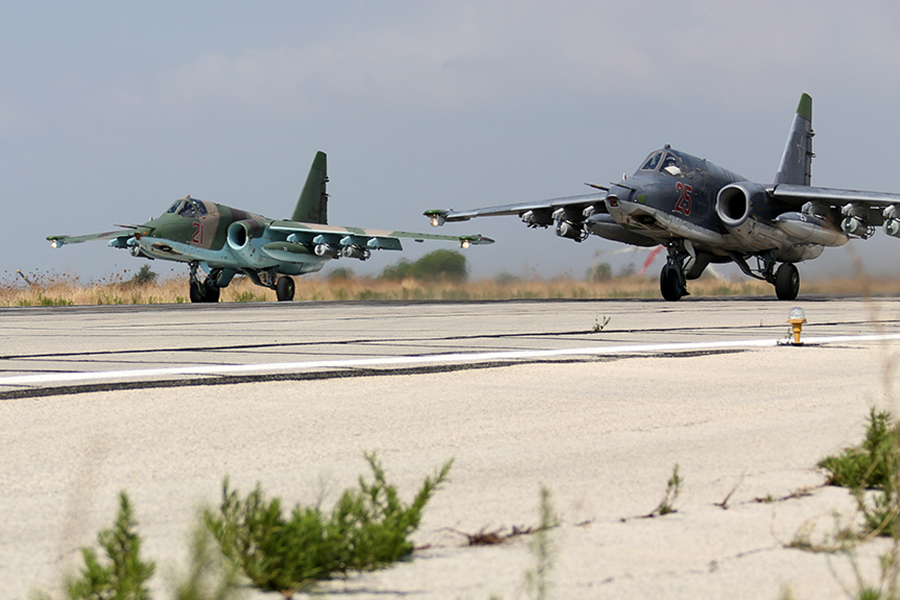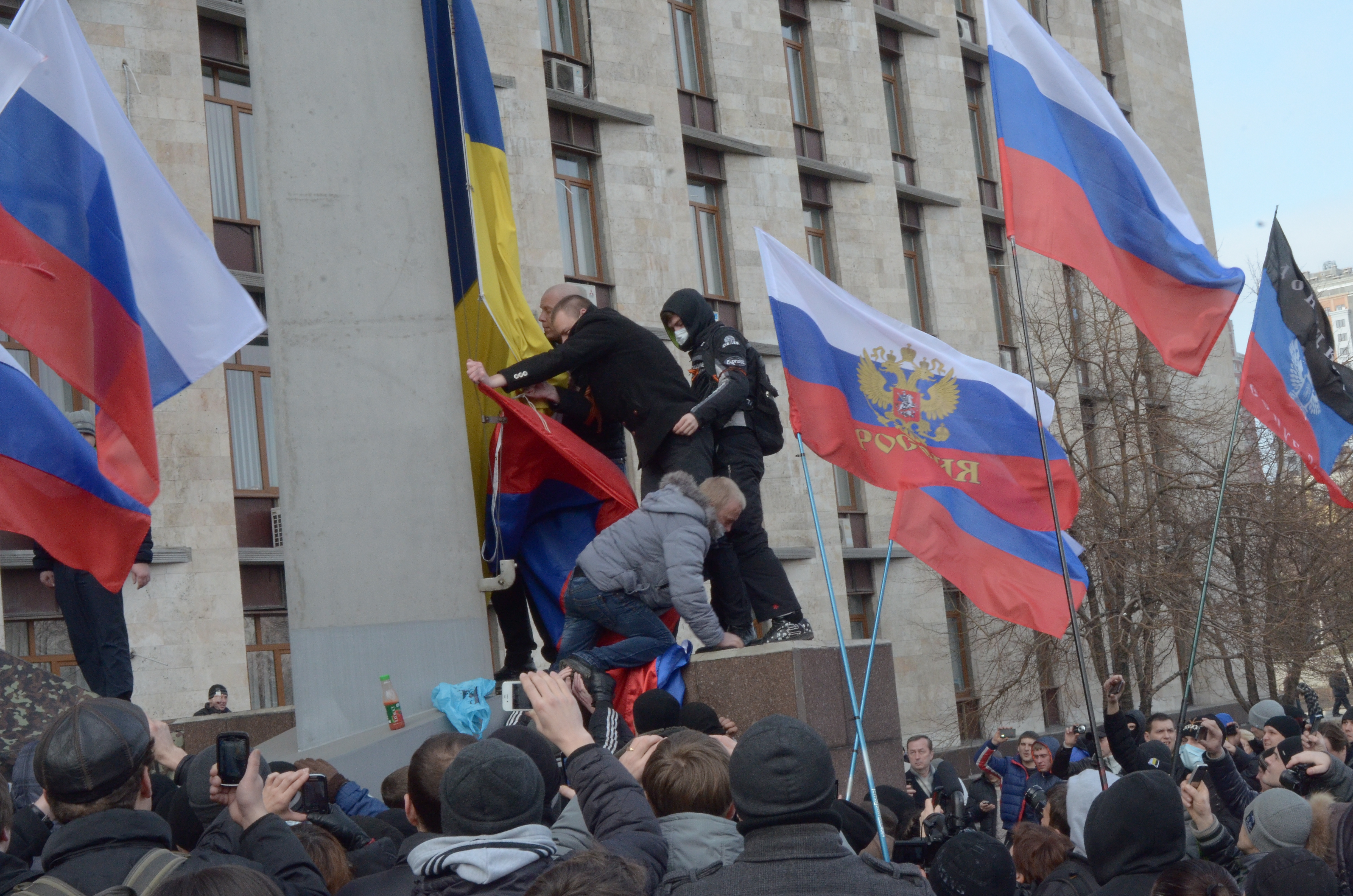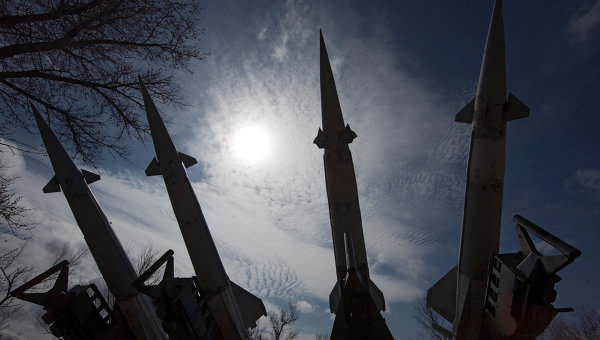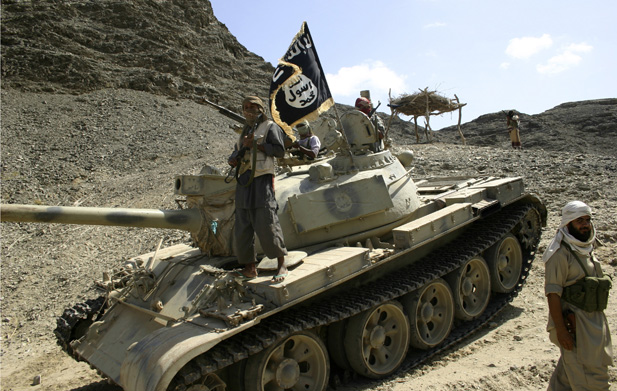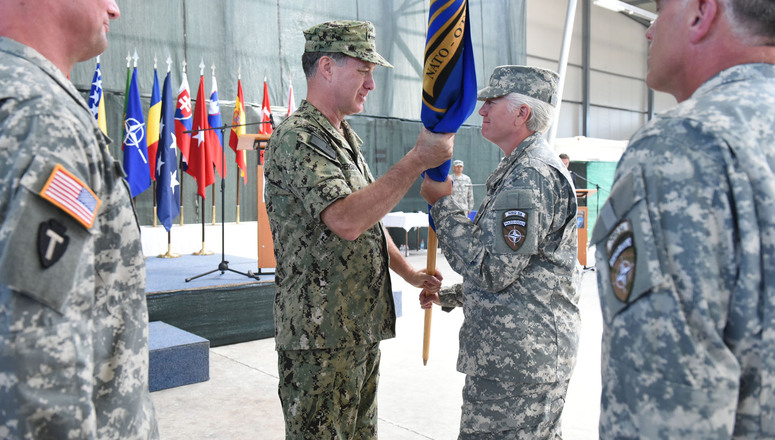With world attention focused on the Russian intervention in Syria and the recent terror attacks in Paris, Moscow’s continued presence in Ukraine has largely faded into the background. However, Russia’s actions in Syria are connected with the country’s Ukrainian activities. The two theaters of Russian activity are not isolated situations, but two sides of Putin’s global geopolitical strategy.
The Ukraine crisis began in early 2014, when pro-western protesters ousted the Ukrainian president, Victor Yanukovych. Yanukovych, who had been working to establish closer ties with Russia, refused to sign an association agreement with the European Union, causing segments of the populace to rise up and depose him. For Moscow, the pro-western overthrow of Yanukovych was an alarming assault on the Russian sphere of influence in Eastern Europe, an encroachment of the West on Russia’s doorstep. With the Yanukovych government in power, Russia enjoyed a friendly neighbor in Ukraine that served as a buffer between the Russian heartland and the West. The chaotic ousting of the pro-Russia regime by European-style democratic forces appeared to compromise that buffer.
In addition, the pro-western revolution threatened Moscow’s access to its military base in Sevastopol, a critical warm water port for Russia on the coast of the Black Sea. The Sevastopol naval base is Russia’s nautical gateway to the Mediterranean, an important staging ground for power projection in the Middle East. The Crimean port also provides crucial strategic defence capabilities on Russia’s southern flank, as it is home to key Russian anti-ship cruise missile systems and air defence apparatus.
Motivated by fears of Western encroachment and the potential threat to the Sevastopol base, Russia moved to secure its interests, using proxy forces within Ukraine backed by covert troops wearing unmarked uniforms to seize Crimea and establish a pro-Russian militant presence in Eastern Ukraine. By annexing Crimea, Russia ensured that its access to Sevastopol would remain unhindered, while also preventing the formation of a unified pro-western Ukraine by fueling a separatist movement in the country’s eastern regions. As expected, the West reacted with outrage to Russia’s aggressive actions, responding by imposing economic sanctions on Russia.
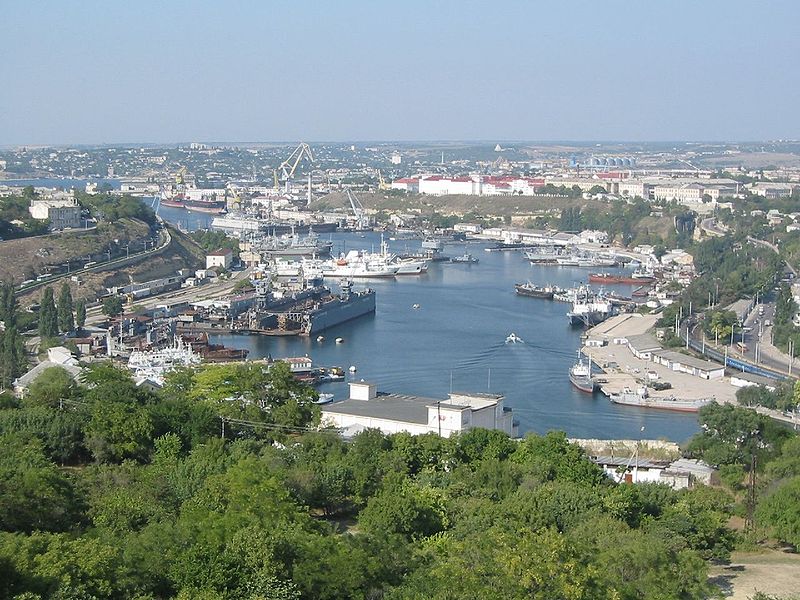
While the West hit Russia with a barrage of sanctions, Russia was soon faced with yet another problem, this time from the Middle East. In the spring of 2011, Russia’s most important ally in the region, the Syrian regime of Bashar Al-Assad, found itself under assault from a variety of rebel groups. By the summer of 2015, opposition groups such as the moderate Free Syrian army and the extremist forces of the Islamic State appeared to be gaining ground against Assad’s army. With Assad in dire straits, Russia once again took a military approach in dealing with the situation, beginning a substantial air campaign against the Syrian opposition forces in September, 2015.
Like the political crisis in Ukraine, the Syrian unrest threatened a number of core Russian interests. While Ukraine served as a buffer against the West in Europe, Assad’s regime serves as a buffer for Russia against Islamic extremism and U.S political influence in the Middle East. ISIS and other terrorist groups represent a significant threat to Moscow, particularly in the Russian Caucasus, home to a large population of discontented Muslims who could be radicalized and driven to launch terrorist attacks within Russia. The Caucasus has proven to be a lucrative recruiting ground for ISIS, as law enforcement officials estimate that there are at least 2000 militants fighting for ISIS who have come from the region.
Within Russian borders, Islamic State is also steadily building up its own militant organization, specifically in the southern region of Dagestan, declaring the so-called Dagestan Governorate of the Islamic State in June while making daily threats promising a terror attack within the Russian heartland. ISIS has also become an even more pressing security issue for Russia after the recent downing of a Russian passenger aircraft over the Sinai, pushing Putin to take a more aggressive stance against the terrorist group. Along with ISIS, moderate U.S.-backed groups like the Free Syrian Army are also problematic for Moscow, as a FSA victory in the country would replace the friendly Assad regime with a ruling party aligned with the West and likely opposed to Russian interests in the Middle East.
Another motivating factor in Russia’s intervention is the protection of the Russian naval base in the Syrian port of Tarsus. Much like the base in Sevastopol, the Tarsus base is crucial for Russian power projection, as it serves as the Russian navy’s only repair and refueling station in the Mediterranean, allowing Russian ships to conduct operations in the region without having to make the long trip back to Sevastopol for maintenance.
However, perhaps the most important incentive driving Moscow’s activity in Syria is the potential to use the crisis as a means to pressure the West to accept the annexation of Crimea and remove economic sanctions on Russia. In the wake of the Paris attacks, the threat of ISIS and the chaos in the Middle East have become the dominant issues on the international agenda. By intervening decisively in the region, Moscow has taken a leadership role in the crisis, showing the world that it is more willing than the U.S. and other Western powers to do what is needed to solve the problem. With its large military presence in Syria, Russia ensures that any possible diplomatic and military solution will likely have to be done in concert with Moscow, forcing the West to work with the Putin regime.
Using its key role in the region as leverage, Russia will likely look to disrupt and perhaps even remove Western sanctions against its economy. After the events in Paris, U.S. and Ukrainian officials are concerned that the sanctions, which expire in late January next year, will not be extended by European leaders. The Paris attacks have provided an opening for Putin to take advantage of the fear of terrorism to trade increased aggression against ISIS in Syria for the removal of sanctions. Recently, French President François Hollande has indicated the need to work with Russia to form a coalition against ISIS, and spoke optimistically about the eventual end of sanctions. Capitalizing on France’s desire for an alliance, Putin has ordered his forces to coordinate airstrikes with Russia’s “French allies,” looking to cement military ties with Paris in the Middle East and erode European support for the renewal of sanctions.
In many ways, Russian activities in Ukraine and Syria share similar motivating factors. In the same way that the intervention in Ukraine was driven in large part by fear of Western political encroachment in Moscow’s sphere of influence, Russian aggression in Syria was also induced by the need to protect a key allied state in Assad’s Syria. Maintaining key naval assets is also a critical need for Russia, as ensuring the security of bases in Sevastopol and Tarsus is essential for it to retain its power projection capabilities in the Middle East and the Mediterranean. At the same time, Russia’s Syrian intervention is a response to the economic sanctions imposed by the West over the Ukraine crisis. By taking the lead in Syria and committing a large military force to combat extremism, Putin believes that he can compel Western countries to ease their sanctions in return for Russian assistance against Islamic State.
In sum, Russia’s global strategy is centered on aggressively countering threats to Russia’s political buffer states in Ukraine and Syria, while also maintaining Russia’s ability to project power abroad from its key naval facilities. Through his attempts to leverage Russia’s military role in the Middle East to force the West to work in concert with Moscow, Putin has shown that he recognizes Russia must reintegrate within the world community to spare its economy the ill effects of crippling sanctions.

